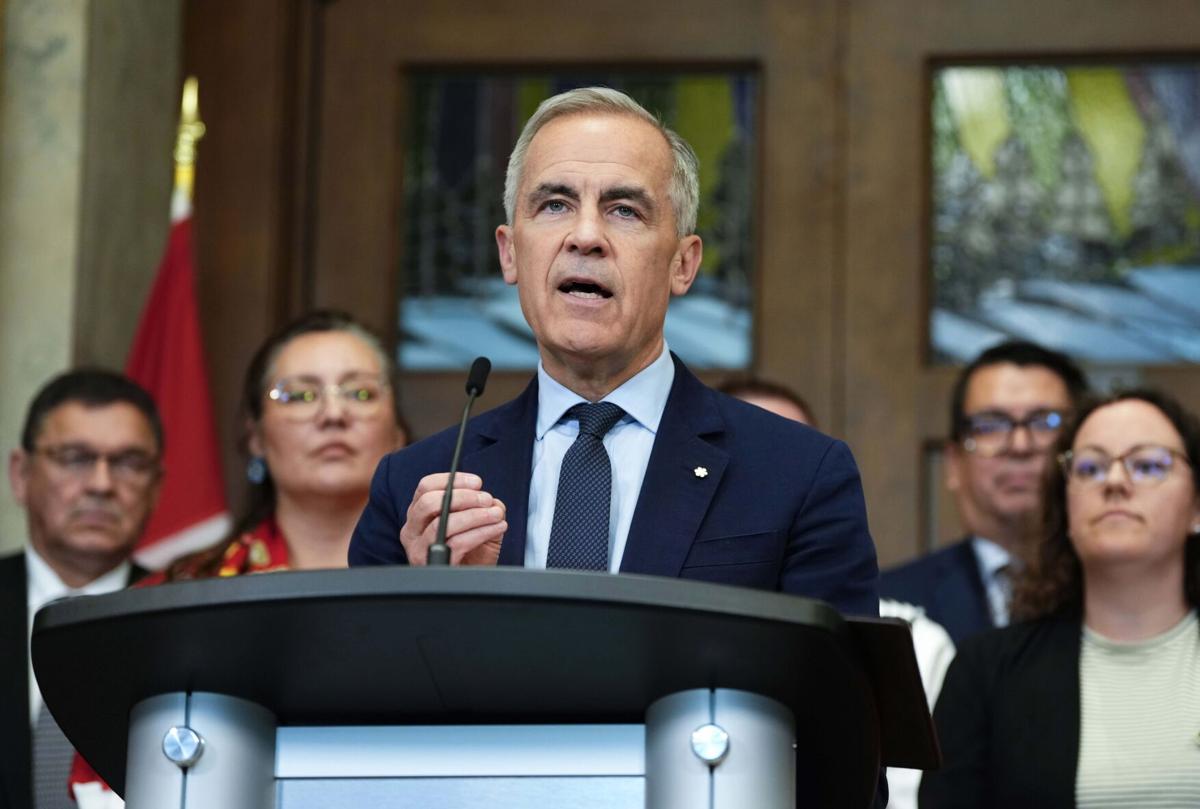Canada’s parliament has passed the One Canadian Economy Act, granting Prime Minister Mark Carney sweeping powers to fast-track major national infrastructure projects Canada Nation-Building act. The move, passed by the Senate on Thursday, aims to strengthen Canada’s economic independence as U.S. President Donald Trump escalates tariff measures.
Streamlining Projects Amid Trade Tensions
The new law empowers the Canadian cabinet to bypass existing federal environmental and regulatory hurdles to approve projects deemed “in the national interest Canada nation-building act.” These could include cross-country pipelines, electricity corridors, mines, ports, and transport upgrades—all aimed at reducing Canada’s reliance on U.S. markets.

“This act removes trade barriers, expedites nation-building projects, and unleashes economic growth—with Indigenous partnership at the centre,” Carney declared last week.
Yet the fast-tracking powers come at a political cost. The bill has drawn sharp criticism from Indigenous leaders and environmental advocates, who argue the rushed process has sidelined meaningful consultation and may endanger Indigenous rights and environmental standards.
Trump’s Tariffs a Catalyst for Action
The legislation follows a turbulent period in Canada-U.S. trade relations. Trump recently reimposed tariffs on Canadian steel, aluminium, and autos, sparking fears over long-term economic disruption. Carney campaigned on a promise to counter American pressure by enhancing Canada’s internal economic resilience.
Meeting a Canada Day deadline (1 July), the passage of this act fulfills a key election pledge to eliminate interprovincial trade and labour barriers and promote domestic infrastructure development.

Indigenous Concerns Over Lack of Consent
While the law promises consultations with Indigenous peoples, it does not require their consent—a major sticking point for many.
Senator Paul Prosper, a Mi’kmaq leader from Nova Scotia, attempted to introduce an amendment mandating Indigenous consent before project approval. The amendment was rejected. Prosper warned that rushing such a powerful law through without proper Indigenous engagement “could set a dangerous precedent.”
“No one wants our children to grow up in squalor… but success must not come on the backs of Indigenous Peoples,” Prosper told the Senate, as quoted by CBC.
Carney’s government argues that consultation will still occur, and points to economic benefits for Indigenous communities via project partnerships. However, the lack of legally binding consent continues to fuel distrust among First Nations.

Environmental and Democratic Backlash
Environmental groups say the bill could weaken Canada’s environmental protections and public participation in project reviews. Critics argue that bypassing certain provisions of federal laws in the name of urgency risks over-centralizing power in Ottawa.
Senator Hassan Yussuff, who supported the bill, acknowledged its speed but called it a response to “an urgent and immediate crisis.”
According to the BBC, similar legislation in the past has taken years to pass through Parliament, but this act was pushed through within months, sparking debate over democratic accountability.
What Happens Next?
The act does not outline specific projects, but the government has indicated that energy corridors and clean tech infrastructure will be top priorities. With legal authority now secured, the cabinet can move swiftly to select and approve projects deemed essential for national development.
Still, future legal challenges from Indigenous groups or environmental coalitions remain possible. The Supreme Court of Canada has previously ruled that meaningful consultation must occur in such cases, though the bar for what qualifies as “meaningful” remains contested.
Carney’s Balancing Act

With this legislation, Mark Carney has taken a bold step toward shaping Canada’s post-Trump economic future. But the cost may be alienating key communities he vowed to empower. As Canada repositions itself in the face of U.S. tariffs, it must navigate the fine line between growth, sovereignty, and inclusion.
Related: Mexico Launches Trade Complaint Over Trump’s New Auto Tariffs